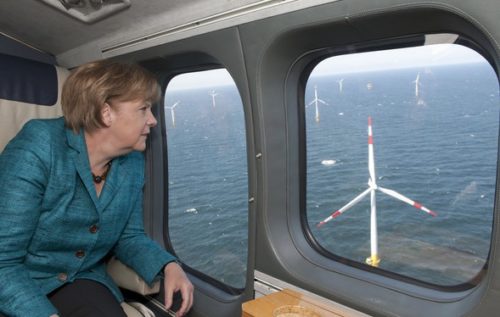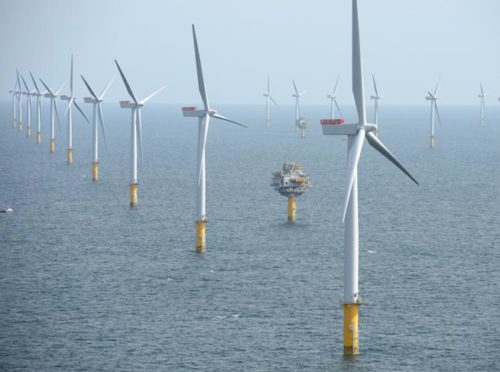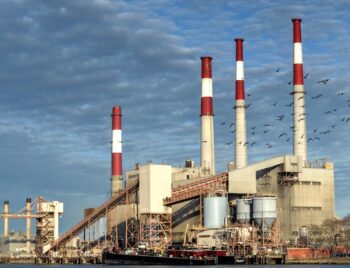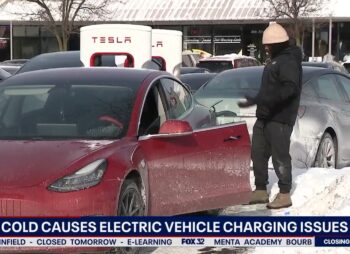Germany’s task force for phasing out coal was meant to launch this week, but yesterday the government quietly announced it is delaying the kick-off. It is the third time the coal exit commission’s launch has been delayed.
The task force has become so controversial – even before it comes into existence – that the government can’t get it started.
Since the idea was proposed by German Chancellor Angela Merkel last year, it has been plagued by fighting over who will lead it, what it will do, and how much power it will have.
There have been arguments about the most minute aspects of the committee, such as what it should be called, who should be in it, and what it should list as its deliverables.
Despite the delays, Berlin is insisting that it will stick to its time line of setting an end date for the use of coal in Germany by the end of the year.
This was a central part of the coalition agreement between Merkel’s center-right Christian Democrats and the center-left Social Democrats agreed in January, setting the stage for the Merkel’s third government which star in March.
A previous attempt to form a coalition government between the Christian Democrats, Liberals and Greens collapsed under the weight of intense disagreements between the free-market Liberals and environmentalist Greens over the coal phase out. The latter said it was essential to any coalition agreement, but the former said it was unacceptable.
The government has set aside 1.5 billion euros to help coal-heavy regions transition to other forms of economic activity by 2021. They have also committed to increasing Germany’s share of renewable power to 65 percent by 2030, up from a 50 percent target in their previous coalition.
But the task force charged with getting them there, called the “Special Commission on Growth, Structural Economic Change and Employment”, has so far been plagued with problems.
The task force is due to present a first report to the government by October with proposals on how to close the gap between the emissions reduction path the country is on and its commitments under the Paris Agreement. The government wants this report ready before the next UN climate summit in Poland in November.
A final report spelling out how the country can phase out coal is due by the end of the year. The group is supposed to be made up of industry representatives, local and national policymakers, environmentalists and labor unions. But there has been disagreement about exactly who should have a seat at the table, and how many people from each category should be in the committee.
Coal is Germany’s single-largest source of carbon emissions, and analysts have said there is no way the country can meet its long-term climate goals without quitting coal. Germany wants to be carbon-neutral by 2050. The country currently gets 40 percent of its energy from coal, a number that has risen since Merkel’s decision to phase out nuclear power in 2011, after the Fukushima nuclear incident in Japan.
The task force is a mammoth project, involving eight German federal ministries, six German states, and perhaps up to 20 utilities and companies. The German website ZfK has published a leaked provisional list of the participants.


















The anti fracking Keep it in the Ground idiots need to wake up because their are total fools
I had to re-read the part about Germany how gets 40% of its power from coal and plans to completely end its use by the end of the year. Even if renewable energy were cheap and reliable, which it isn’t, ending the use of coal by the end of the year wouldn’t be possible. They couldn’t even do it by buying power from France’s nuclear ability if they had that much to sell because the transmission lines couldn’t be built fast enough. This is an example of a common trait among environmentalists that they are completely out of touch with reality.
One way to implement an exit from coal by the end of the year would be to have planned rolling black outs. Homes and businesses would have ten houses a day without power. They are likely to have black outs, but they won’t be planned.
One does not need a crystal ball to predict helping the areas impacted by the coal exit with the program “Special Commission on Growth, Structural Economic Change and Employment.” If it happens at all it will be very inadequate.
I guess Germany’s energiewende hasn’t caused enough suffering and they need something to make their misery even worse.